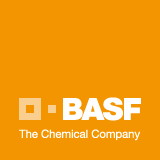Dec 18 2008
BASF is increasing its production of low molecular weight, highly reactive polyisobutene (HR PIB). Between now and 2010 the company will increase its annual capacity by 25,000 metric tons. The polymer, marketed worldwide under the Glissopal® trademark, is an intermediate product which is used to manufacture additives for fuels and lubricants.

The increase in capacity is taking place within the local integrated system, known as Verbund, at the Ludwigshafen site. “In this way we are improving our efficiency and strengthening our global business in fuel additives and intermediates for lubricant additives. At the same time we are making a positive contribution to the company’s carbon footprint by doing away with transports between different sites. Beyond that, we are making significantly higher quantities of HR PIB available to the market,” says Hans W. Reiners, head of BASF’s Performance Chemicals division. “With this expansion we are building a bridge between economics and ecology.” Already in March 2008, BASF increased its Glissopal® capacity at its site in Antwerp, Belgium by 25,000 metric tons per annum.
Regarding the expansion, Rüdiger Mackenthun, head of BASF’s Automotive and Refinery Chemicals business unit, comments: “As the world’s leading company in this field, we are demonstrating with this investment that we will continue to meet our customers’ growing demand for Glissopal®.